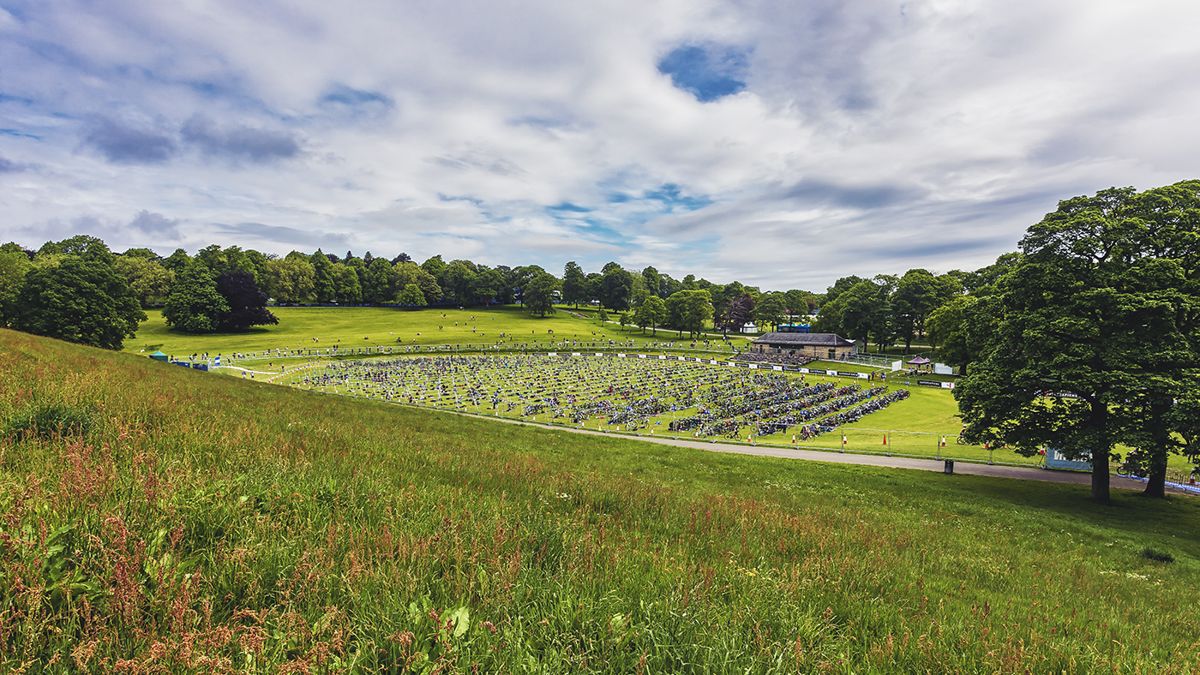Leeds City Council has enforced a strict BBQ ban in its parks to protect the local ecosystem and prevent accidental fires, urging visitors to enjoy picnics instead. Residents are reminded to dispose of litter responsibly and to call 999 immediately in case of a grass fire, ensuring the lush landscapes of Leeds remain safe and beautiful for everyone.
Is there a BBQ ban in Leeds parks?
Yes, Leeds City Council has enforced a strict BBQ ban in Leeds parks to prevent accidental fires and protect the local ecosystem. Picnics are encouraged as a safer alternative, and visitors are urged to dispose of litter properly. In case of a grass fire, the public should immediately call 999.
Parks and Countryside Awareness
As the much-anticipated bank holiday looms on the horizon, Leeds City Council has issued an important reminder to all park-goers. The beloved and picturesque Leeds parks, which serve as a verdant escape for city dwellers, have a strict policy against the use of barbecues. While picnics are a welcomed activity, ensuring a blend of relaxation and outdoor dining, the council underscores the ban that’s in place to safeguard the parks and the diverse wildlife that call them home. The risk associated with barbecues in such environments is not a trivial matter; ash and falling embers from barbecues have the potential to catalyze accidental fires which can have a rapid and destructive domino effect, especially amidst dry grass.
The council’s message is clear: visitors are encouraged to enjoy the lush landscapes responsibly. In addition to steering clear of fire lighting, park visitors are also urged to exhibit environmental stewardship by disposing of litter appropriately. Whether it’s taking it home or finding a nearby bin, proper litter disposal is essential. Neglected litter, including glass bottles basking in the sunlight, poses a fire risk. The same can be said for carelessly discarded cigarettes, which also contribute to the potential ignition of fires.
In 2021, Marsden Moor, located in West Yorkshire, bore the brunt of a fire that wreaked havoc across the moorland. The incident resulted in significant damage to precious peatland habitats and caused harm to the local wildlife populations, including ground-nesting birds. The fire, which demanded the attention of over 100 firefighters, also came with a hefty financial toll, accumulating a staggering £500,000 in costs related to emergency services and the ensuing damage.
Official Statements and Advisories
Councillor Mohammed Rafique has been at the forefront of this initiative, expressing his delight in seeing the community relishing the sunshine and the parks’ serene ambience. “But we want to remind people that we don’t allow barbecues and would encourage choosing a picnic instead,” stated Councillor Rafique, who oversees the city’s climate, energy, environment, and green space. He continues to emphasize the potential harm barbecues can cause, not just to the park’s aesthetics but to its ecological integrity. His advice to the public is to reserve barbecue activities for home settings, where they can be more safely managed.
The local government’s stance on this matter is unequivocal. Should anyone witness the outbreak of a grass fire, the directive is simple but urgent: dial 999 immediately. The West Yorkshire Fire and Rescue Service’s Assistant District Commander in Leeds, Aaron Clark, lent his voice to the advisory, encouraging the public to savor the beauty of West Yorkshire’s parks and countryside, but to do so with safety at the forefront of their activities. “Barbecues are a hazard and can cause widespread fires which can be very resource-intensive for us to tackle as a service,” Commander Clark explained. He also pointed out that disposable barbecues, often perceived as extinguished, can retain enough heat to trigger a fire, underscoring the importance of opting for a picnic instead.
Engaging the Community for Safety
The overarching goal of these advisories is not to curtail the enjoyment of the city’s parks but to foster a community-wide commitment to preserving these spaces. By choosing alternatives to barbecuing, such as picnics, Leeds residents can collectively ensure the continuing splendor and vitality of their local parks. The unity in action is vital for the protection of the parks’ ecosystems, which, in turn, contributes significantly to the well-being of all who visit them.
The conversation surrounding the barbecue ban in Leeds parks is ongoing, and residents are invited to stay informed and involved. The Leeds City Council’s website offers a wealth of information on park rules, events, and environmental initiatives. For those seeking to learn more or to join the discussion on how best to protect Leeds’ green spaces, you can visit Leeds City Council – Parks and Countryside for updates and guidance.
The narrative is clear: Leeds City Council, along with emergency services, is dedicated to preventing the repeat of past tragedies. By adhering to guidelines and embracing a sense of communal responsibility, every park visitor becomes a guardian of the city’s natural heritage. The message is one of hope and proactive care: let’s preserve the beauty of Leeds parks for generations to come by making informed choices today.
- Leeds City Council has implemented a strict BBQ ban in its parks to protect the local ecosystem and prevent accidental fires.
- Park-goers are encouraged to enjoy picnics as a safer dining alternative and are reminded to dispose of litter responsibly.
- In the event of a grass fire, the public is instructed to call 999 immediately to ensure a swift response.
- Councillor Mohammed Rafique emphasizes the importance of avoiding barbecues in parks to maintain their ecological integrity and aesthetics.
- The community is urged to engage in responsible park usage to preserve the beauty and vitality of Leeds’ green spaces.
